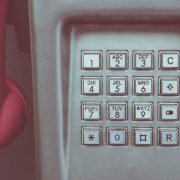A Helping Hand: 3 Key Things to Remember About the Government’s Coronavirus Aid Package

Small Businesses Can Get Low-Interest Loans
The CARES act makes provisions for the Small Business Administration (SBA) to provide cash-flow assistance to businesses with fewer than 500 employees in the form of low-interest loans. These loans are provided by banks, but they’re guaranteed by the SBA. To get a loan, businesses must meet eligibility criteria, find an approved SBA 7(a) lender, and apply for the program before funding runs out. The best way to get started is to find information online at bswllc.com about CARES act loan consulting for small business owners.
The loans provided through the CARES act Paycheck Protection Program are specifically designed to help small businesses weather the storm of COVID-19. They can be used to cover things like payroll costs, paid sick leave, health insurance premiums, mortgage payments, and more. Eligible borrowers include not just small businesses, but also 501(c)(3) tax-exempt non-profits, registered veterans organizations, sole proprietors, tribal businesses, independent contractors, and the self-employed.
Coronavirus Relief Loans Are Partially Forgivable
When the loans are used to pay employee wages after businesses are partially or fully suspended or gross income declines by more than 50% in comparison to last year, the loans are partially forgivable. Eligible businesses with less than 100 full-time employees can get partial loan forgiveness regardless of whether they have been subject to shut-down orders.
If borrowers follow all the regulations laid out in the CARES act for how the loans can be used, they will be eligible for forgiveness of the money spent not just on payroll costs, but also rent, utilities, interest payments, and mortgages taken out before February 15, 2020. Since the SBA is guaranteeing the loans through private lenders, it is up to the discretion of the lender to determine forgiveness. The timeframe for forgiveness by lenders is currently 60 days from the borrower’s request.
Borrowers must provide documentation of how the money was spent to prove that the loan was used for approved purposes. This documentation must verify how many full-time equivalent employees are on the company’s payroll, how much they were paid, and how much the business spent on mortgage or lease obligations, utility payments, or other debt obligations. Lenders can request additional documentation if they deem it necessary to verify that the borrower’s expenses qualify for loan forgiveness.
Businesses that lay off employees or reduce their wages during the covered period of eight weeks from the time of taking out the loan will have the amount of forgiveness reduced. Employers who reduced payroll or employee headcounts between February 15 and April 26 can reinstate their former employee payrolls by June 30 to restore their ability to request loan forgiveness.
The CARES act also makes provisions for a refundable payroll tax credit. Employers who keep their workers on the payroll even if they can’t work full-time, or at all, can expect the program to cover 50% of their wages during the COVID-19 crisis. The credit will cover wages paid from March 13 to December 31 of this year up to $10,000 per eligible employee.
Student Loan Borrowers Get a Reprieve
Business owners aren’t the only ones who have benefited from the CARES act. In addition to the paycheck protection program, it also stipulates that student loan borrowers will not have to make payments on the federal loans until September 30. During this relief period, student loan payments will be fully deferred, and no interest will be accrued on the accounts.
There’s even more good news for borrowers whose loans are in rehabilitation. For every month that the loans are suspended due to the COVID-19 pandemic, the suspended payment will count as if the borrower had made the payment. This avoids disruptions to former students’ loan forgiveness obligations and reduces the burden on borrowers who are rehabilitating their federal student loans.
Borrowers with eligible student loans don’t have to do anything to take advantage of this program. They can simply stop paying their loans without incurring any fees or additional interest. Those who choose to continue paying their loans will also benefit since 100% of the payments will go to paying down their principal balances during this time.
Borrowers who have defaulted on their student loans will not have their wages garnished during the relief period. If they have experienced wage garnishments since March 13, borrowers can contact their employers to request that any funds sent to the Department of Education during this time be returned. Borrowers whose 2019 tax refunds or Social Security payments were withheld to pay off defaulted student loans can also have their refunds returned provided the process for withholding it was completed after March 13.
The CARES act also makes a provision for employers who pay down student loans as part of their employee benefits packages. These employers can now contribute up to $5,250 through the rest of 2020 tax-free, which benefits both employers and employees.
The Bottom Line
It can be difficult for business owners and consumers to sort out all the provisions of the CARES act by themselves. The best thing for those with questions about eligibility or the application process to do is to contact an accountant who can help them better understand what assistance is available during these trying times. The pandemic has changed everything about life in America and across the world, but it shouldn’t mean that business owners and families wind up suffering needlessly. Don’t be afraid to take advantage of the CARES act provisions for protecting America’s workers, but make sure to consult an expert before taking out an SBA-guaranteed loan to ensure eligibility and clarify requirements.











Leave a Reply
Want to join the discussion?Feel free to contribute!